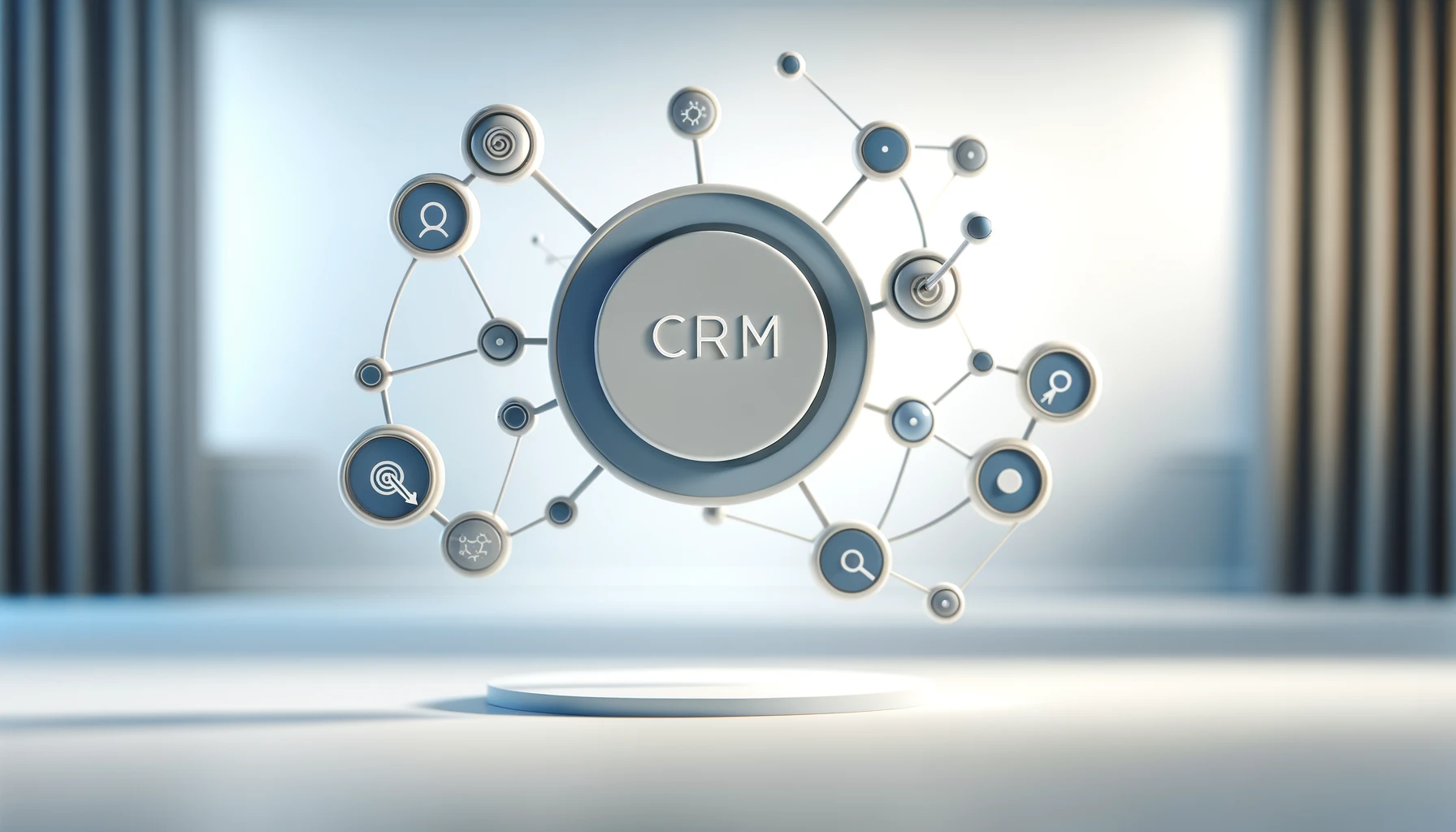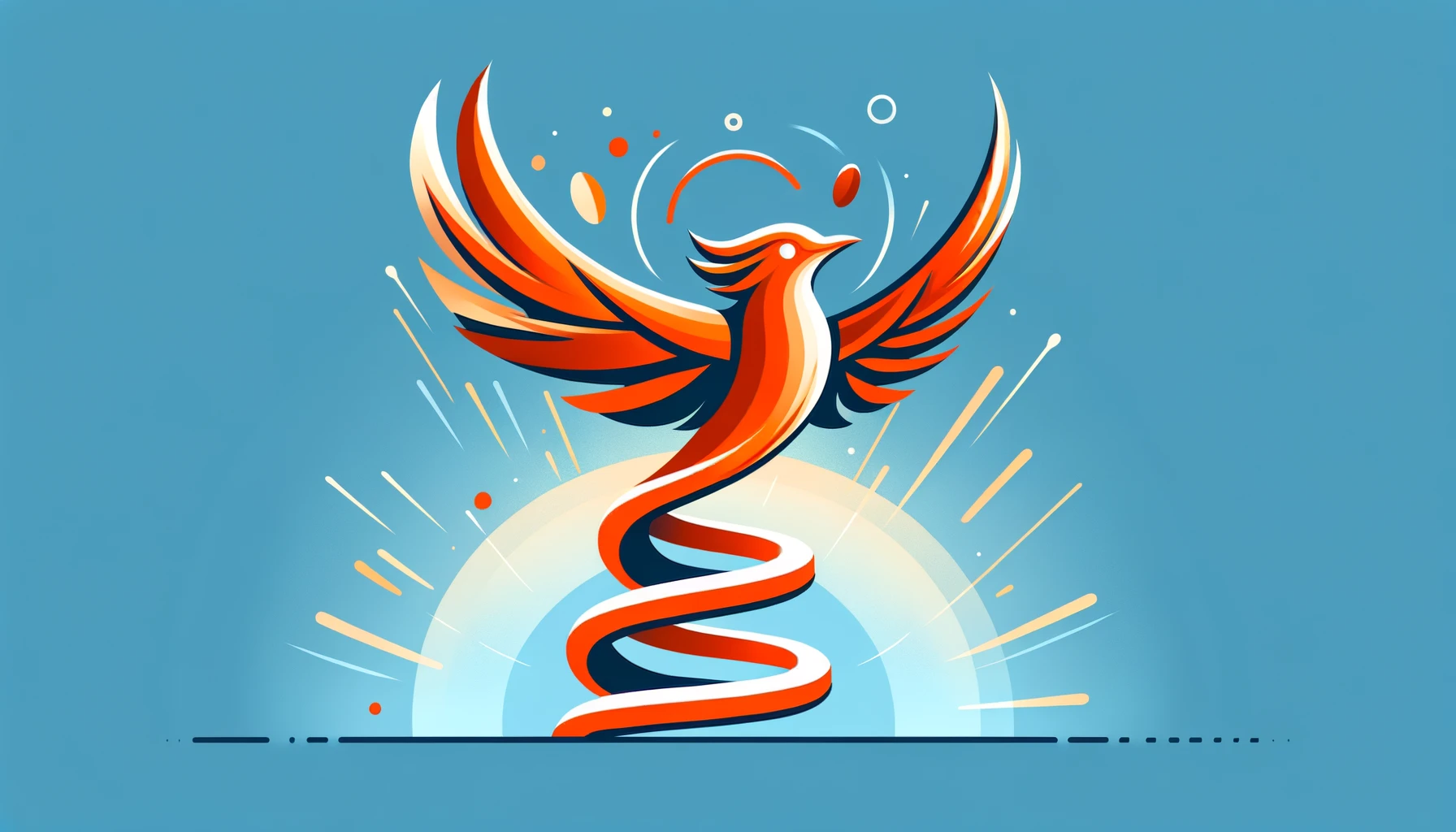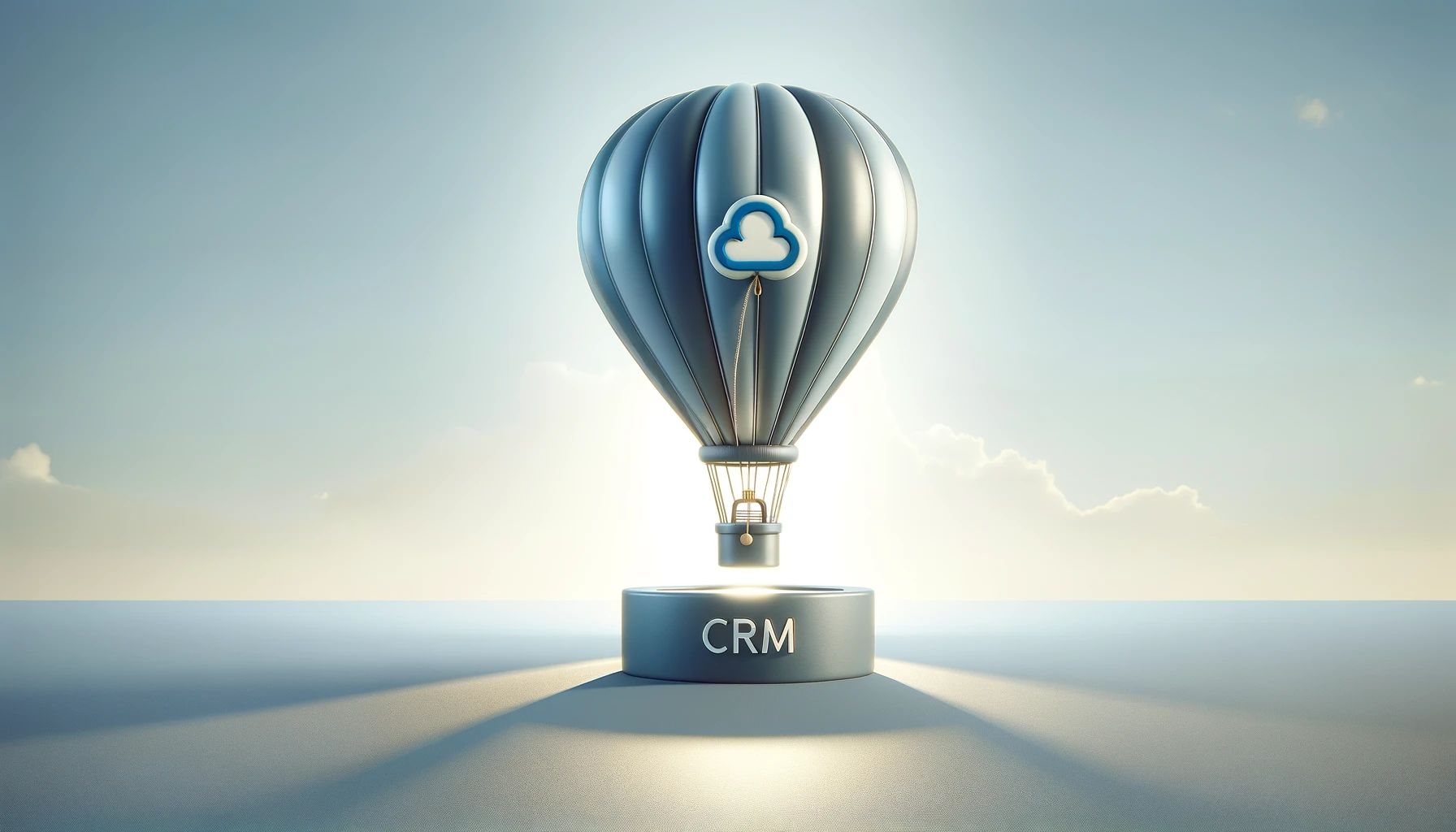Exploring CRM: What Does It Stand For

Discover the meaning of CRM: an essential tool for managing customer relationships effectively. Learn how CRM can transform your business strategy.
Demystifying the Acronym: What CRM Stand For
In the bustling world of business, CRM has become a buzzword. But what does CRM stand for? CRM, or Customer Relationship Management, is a strategic framework that manages all aspects of a company’s interactions with its customers.
To put it simply, a CRM system allows businesses to manage relationships and interactions with customers and potential customers. It helps companies stay connected to their customers, streamline processes, and improve profitability.

Let’s delve deeper into what CRM stands for:
-
Customer: The heart of any business. Understanding and meeting customer needs is crucial for business success.
-
Relationship: Building and maintaining a positive relationship with customers is key to securing their loyalty, which directly influences a company’s bottom line.
-
Management: The process of managing and organizing customer interactions for optimal business outcomes.
To illustrate the importance of CRM, let’s consider a hypothetical scenario. Imagine a company without a CRM system. The sales team might have a hard time tracking leads and customer interactions, leading to missed opportunities. The marketing team may struggle to understand customer behavior and preferences, making their campaigns less effective.
Now, imagine the same company but with a CRM system in place. The sales team can efficiently track and manage leads, resulting in increased sales. The marketing team has access to customer data, enabling them to create personalized campaigns that resonate with their audience.

Here are some compelling statistics that highlight the importance of CRM:
- Companies that leverage CRM increase sales by 29% (SalesForce)
- CRM can improve customer retention by 27% (Trackvia)
- A 5% increase in customer retention can increase profits by 25-95% (Harvard Business Review)
| Metric | Before CRM | After CRM | Improvement |
|---|---|---|---|
| Sales Conversion Rate (%) | 15 |
25 |
+66% |
| Customer Retention Rate (%) | 60 |
75 |
+25% |
| Customer Satisfaction Score (out of 10) | 6 |
8 |
+33.3% |
| Marketing Campaign ROI (%) | 50 |
70 |
+40% |
In conclusion, understanding what CRM stands for and how it can benefit your business is a crucial step towards business success. It’s much more than just a piece of software—it’s a business strategy that puts the customer at the heart of your operations.
The Power of CRM: A Deep Dive into Its Functions
Understanding the concept of CRM is just the beginning. The real power of CRM lies in its diverse functionalities that can propel a business to new heights. CRM is not just a tool, it’s a comprehensive strategy that can revolutionize the way companies interact with their customers.
The first and foremost function of CRM is to centralize customer data. This means all information about a customer - from their first interaction with your company to their latest purchase - is stored in one place. This allows for a 360-degree view of the customer, helping businesses understand their needs, preferences, and behavior.

Another critical function of CRM is lead management. It helps companies efficiently track and manage leads, nurturing them into loyal customers. This can significantly improve a company’s sales conversion rate.
Here’s a simplified example: A potential customer, let’s call him John, visits your website and fills out a contact form. This contact form is automatically fed into your CRM system, which then assigns John as a lead to a sales representative. The sales representative can now follow up with John, understanding his needs, and providing him with relevant product information. This not only increases the chances of John becoming a customer but also provides him with a personalized customer experience.
In addition to these, CRM also offers:
- Sales Automation: Automates repetitive tasks, freeing up the sales team to focus on selling.
- Marketing Automation: Helps in creating personalized marketing campaigns.
- Customer Service Management: Streamlines customer service processes, increasing customer satisfaction.

To understand the impact of CRM, let’s look at some numbers:
| Function | Without CRM | With CRM | Improvement |
|---|---|---|---|
| Sales Conversion Rate (%) | 15 |
29 |
+93% |
| Customer Satisfaction Score (out of 10) | 6 |
8 |
+33% |
| Marketing Campaign ROI (%) | 50 |
70 |
+40% |
In essence, CRM is a powerful tool that can transform the way a company operates, making it more customer-centric and efficient. It’s the secret sauce that can take a company from good to great.

Unlocking Success: How CRM Levels Up Your Business
In the competitive business landscape, the key to success lies in understanding and meeting customer needs. This is where CRM comes into play. By providing a comprehensive view of each customer, CRM enables businesses to deliver personalized experiences and build lasting relationships.
The first step towards leveraging CRM is centralization of customer data. This implies that all information related to a customer, from the first interaction to the most recent purchase, is stored in a single location. Having a 360-degree view of the customer allows businesses to understand their needs, preferences, and buying behavior.
Once the customer data is centralized, CRM tools can help in effective lead management. An efficient CRM system can track a prospect’s journey, right from the initial interaction to the final conversion. This not only increases the chances of conversion but also enhances the overall customer experience.
For instance, consider a potential customer named Mary who visits your website. The moment Mary fills out a contact form, the CRM system alerts a sales representative to follow-up. This not only increases the chances of Mary becoming a customer but also provides her with a personalized experience.
CRM also delivers:
- Sales Automation: This feature automates routine tasks, allowing the sales team to concentrate on selling.
- Marketing Automation: CRM can help in creating tailored marketing campaigns.
- Customer Service Management: CRM streamlines customer service processes, resulting in improved customer satisfaction.

The impact of CRM can be assessed through the following statistics:
| Function | Without CRM | With CRM | Improvement |
|---|---|---|---|
| Sales Conversion Rate (%) | 15 |
29 |
+93% |
| Customer Satisfaction Score (out of 10) | 6 |
8 |
+33% |
| Marketing Campaign ROI (%) | 50 |
70 |
+40% |
In a nutshell, CRM is not just a tool, it’s a comprehensive strategy that can revolutionize the way businesses interact with their customers. With CRM, businesses can enhance customer satisfaction, increase sales, and improve profitability.

Real-world Examples: CRM Making Business Life Easier
In the realm of customer relationship management, real-world examples can vividly illustrate the transformative power of CRM. Let’s explore a few instances where CRM has significantly simplified business operations and boosted profitability.
Consider a bustling e-commerce company, struggling to keep track of its customer interactions across multiple platforms. The company decided to leverage a CRM system, which centralized all customer data in one place. This allowed the team to effectively track customer interactions and respond to inquiries promptly, enhancing customer satisfaction.

Another instance is a digital marketing agency with a vast clientele. The agency needed a system to manage their client relationships and track the performance of their marketing campaigns. A CRM system proved to be the solution, providing key insights into client preferences and campaign effectiveness. This led to the creation of more personalized and successful marketing strategies.
- Centralized client data
- Improved understanding of client preferences
- Enhanced campaign effectiveness
Here’s a simple comparison that highlights the transformation:
| Metric | Without CRM | With CRM | Improvement |
|---|---|---|---|
| Customer Response Time (hours) | 24 |
8 |
-66% |
| Campaign Effectiveness (%) | 60 |
85 |
+41.7% |
| Customer Satisfaction Score (out of 10) | 6 |
8 |
+33.3% |
In essence, these examples underline the transformative power of CRM. It’s not just about managing customer relationships, but also about simplifying business operations, understanding customer needs, and ultimately driving business success.

A Beginner’s Guide: Getting Started with CRM
Entering the world of CRM can seem daunting at first. However, with a clear understanding of what CRM stands for and its functionalities, you can unlock a world of opportunities for your business. To get started, it’s essential to assess your business needs. Identify the key areas where a CRM can add value - be it sales, marketing, customer service, or all three.
Next, map out your customer journey. Understand the touchpoints where your business interacts with customers and how a CRM can enhance these interactions. This could range from tracking a lead’s journey to automating marketing campaigns, to streamlining customer service processes.
Once you have a clear understanding of your needs, it’s time to choose a CRM system. There are numerous CRM systems available in the market, each with its unique features and benefits. Choose a system that aligns with your business goals and can scale as your business grows.
Here are some key features to consider when selecting a CRM:
- Ease of use: The CRM should be user-friendly and easy to navigate.
- Customizability: The CRM should be flexible enough to adapt to your business processes.
- Integration: The CRM should seamlessly integrate with other tools and software your business uses.
Implementing a CRM is not a one-time event but a process. It’s essential to train your team on how to use the CRM effectively. Regularly review and update your CRM strategy to ensure it continues to align with your business goals.
To illustrate the impact of a well-implemented CRM, let’s look at some numbers:
| Metric | Before CRM | After CRM | Improvement |
|---|---|---|---|
| Sales Conversion Rate (%) | 15 |
29 |
+93% |
| Customer Satisfaction Score (out of 10) | 6 |
8 |
+33% |
| Marketing Campaign ROI (%) | 50 |
70 |
+40% |
In essence, starting with CRM can be a game-changer for your business. It’s a strategic investment that can yield significant returns in the form of enhanced customer relationships, increased sales, and improved business efficiency.

The Hidden Benefits of Understanding What CRM Stand For
While the primary role of CRM is to manage customer relationships, the underlying benefits of understanding what CRM stands for extends far beyond. By grasping this concept, businesses can unlock a multitude of advantages that can propel them to greater heights.
Firstly, CRM systems offer a centralized hub for customer information. This centralization of data reduces the chances of miscommunication within the team and enhances the efficiency of customer service. It also provides a comprehensive view of the customer, enabling businesses to tailor their services to meet customer needs more accurately.
Secondly, CRM aids in cultivating a customer-centric culture within the organization. By putting the customer at the heart of all operations, businesses can ensure that their services are always aligned with customer expectations. This not only improves customer satisfaction but also fosters customer loyalty.
Additionally, CRM can enhance decision-making processes. By providing valuable insights into customer behavior and preferences, CRM enables businesses to make informed decisions that can drive business growth.
For instance, a company looking to expand its product line can leverage CRM data to understand what products or services their customers prefer. This ensures that the new product aligns with customer preferences, increasing the chances of its success.
Let’s visualize these benefits with some compelling stats:
| Metric | Without CRM | With CRM | Improvement |
|---|---|---|---|
| Customer Satisfaction Score (out of 10) | 6 |
8 |
+33% |
| Customer Retention Rate (%) | 60 |
75 |
+25% |
| Decision-making Efficiency (%) | 50 |
70 |
+40% |
So, understanding what CRM stands for is not just about managing customer relationships, it’s about creating a customer-centric business model that can drive business growth and success.
FAQs
-
What Defines the Core Functionality of a CRM System? A Customer Relationship Management (CRM) system is not just a tool for storing client data; it’s a comprehensive platform for enhancing business-client interactions. It streamlines communication and personalizes customer experiences by integrating data management, customer interaction tracking, and advanced analytics.
-
How Does a CRM System Enhance Customer Interactions? CRM systems revolutionize customer interactions by providing tools for personalized communication and efficient service. They allow businesses to track customer preferences, purchase history, and feedback, enabling a more tailored and responsive approach to customer needs.
-
Can CRM Systems Improve Customer Retention? Absolutely. By personalizing customer experiences and providing streamlined communication, CRM systems significantly improve customer satisfaction. This leads to higher customer retention rates as clients feel valued and understood.
-
Are CRM Systems Beneficial for All Sizes of Businesses? Yes, CRM systems are versatile and scalable, making them suitable for businesses of all sizes. Whether it’s a small startup or a large corporation, CRM tools can be tailored to meet the specific needs of any business, providing valuable insights and enhancing customer relationships.
-
How Does CRM Contribute to a Business’s Bottom Line? CRM systems contribute to a business’s bottom line by improving efficiency in customer management and enhancing decision-making through data-driven insights. This leads to increased sales, higher customer satisfaction, and ultimately, a more profitable business.
Read more about low-code platform ozma.io
CRM for Beginners: Easy to Start!
CRM for Photographers: More Clients and Efficiency





